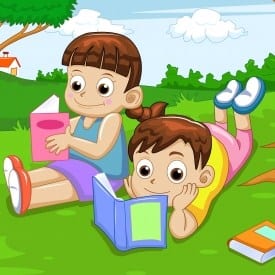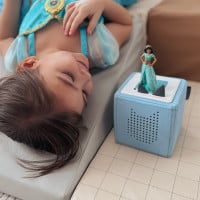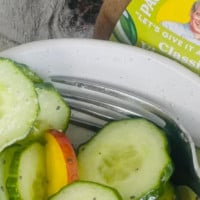In her book, Reading Magic, acclaimed Australian author, Mem Fox states that “Experts in literacy and child development have discovered that if children know eight nursery rhymes by heart by the time they’re four years old, they’re usually among the best readers by the time they’re eight.”
Paediatric Speech Pathologist and literacy specialist Rebecca King from Kids First Children’s Services in Sydney agrees. She says that “international research has shown that children who learn nursery rhymes and songs reap numerous language, learning and social rewards.”
“Studies show that children learn more in their first eight years than at any other stage in their lives. Songs and nursery rhymes give kids the chance to develop the language and learning foundations needed for good reading, writing and literacy skills later on.”
Rebecca says that rhyme is important in developing phonemic [hearing] awareness in children.
“I support many primary school aged children who have literacy problems because, as preschoolers, they missed out on receiving the oral support that nursery rhymes offer. Nursery rhymes are part of kids’ pre-literacy skills and their value to children’s cognitive development cannot be under-estimated.”
Along with building memory, articulation and understanding of concepts, Rebecca says that nursery rhymes help children to paint pictures in their heads.
“In this age of TV, video games and handheld digital devices, the importance of building kids’ imaginative skills has never been more critical.”
“A parent or teacher who tells stories, recites rhymes and sings songs helps kids to develop creativity and this is a very powerful learning tool. Many children’s later literacy problems could be averted if parents simply took the time to read and talk with children from birth so that the child gains a solid oral language base.”
Rebecca says children gain many other benefits when they learn nursery rhymes.
“Learning nursery rhymes by heart helps children to engage in social routines that encourage skills like turn-taking and listening, which are vital for the development of conversation.”
Children who enjoy nursery rhymes also learn to predict and anticipate what’s coming next.
“Although nursery rhymes like Three Blind Mice can be a bit gruesome if we really think about their storylines, the reality is that Jack and Jill who go up the hill and Humpty Dumpty who falls off a wall give kids great opportunities to not only develop theirvocabulary, but also build memory and comprehension.”
“An extra benefit of these simple songs is that they teach children how to articulate words, modulate their voices and enunciate clearly”
According to Rebecca, before children learn to read, they need to understand spoken language.
“Concepts like bigger, smaller, behind, in front, first and last have relevance in all areas of learning. The words used in nursery rhymes and songs help a child develop language comprehension because they teach kids to associate key words with people, objects and events in their daily lives”
Photo courtesy of www.freedigitalphotos.net




















7:26 pm
4:38 pm
4:24 pm
9:28 am
3:10 pm
8:28 pm
8:34 pm
4:05 pm
1:10 pm
9:30 pm
9:31 pm
6:55 pm
1:26 am
7:36 pm
6:40 am
9:10 am
9:55 pm
10:04 am
12:21 pm
- «
- 1
- …
- 5
- 6
- 7
- »
Post a commentTo post a review/comment please join us or login so we can allocate your points.